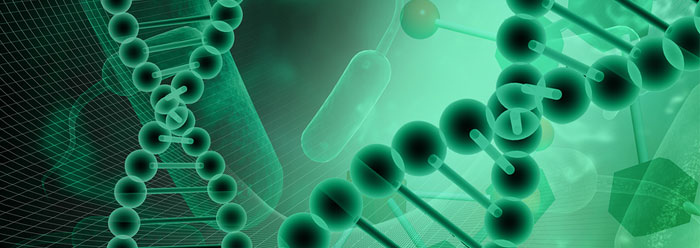Evolutionists Call New Plant
Epigenetic Study 'Heresy' by Jeffrey Tomkins, Ph.D. *

New research has uncovered a hidden layer of trait-determining epigenetic information that resides outside the DNA sequence in plants. This new discovery challenges the evolutionary paradigms of the scientific community and their long-standing views on how organisms adapt to changing environments at the molecular biological level of the cell. In fact, some are even calling this recent research "evolution heresy."1
For over the past 50 years, Darwinian evolutionists have attributed changes in an organism's traits to the specific DNA sequences that code for them. They never anticipated a hidden layer of epigenetic information overlaying the DNA code to be directly involved in how a plant interfaces with its environment.
Both plants and animals have genetic machinery that modifies the information and function of their genomes without actually changing their genetic code. This modification process is known as "epigenetics." One of the best studied of these epigenetic processes involves the chemical tagging of DNA nucleotides across the genome using methyl groups. These "methyl tags" are attached to cytosine nucleotides in specific patterns around genes and other expressed sequences by a specialized group of proteins called methyltransferases.
This methyl-tagging system (methylation) plays a key role in determining how and when genes are turned off and on along chromosomes. The specific placement and maintenance of these methyl tags is both dynamic and precise. When a cell divides and its DNA is replicated, the duplication of its methyl-tag patterns is also copied, and this complex systems engineering is only now beginning to be understood.
A recent study of the Arabidopsis plant adds to the emerging importance of epigenetics in adaptation.1 In this project, researchers tested 80 different Arabidopsis strains that were nearly identical genetically, except for some that lacked a gene controlling proper DNA methylation patterns. Thus, the test focused on a large population of genetically similar plants that had both normal and aberrant levels of methylation in their genomes. The researchers tested the plants over several generations for flowering time and root growth.
The goal of the study was to determine if variability in these traits was passed along from generation to generation by genetic or epigenetic differences. They found that the DNA sequence in the regions of the Arabidopsis genome that control both flowering time and root length was identical for all 80 plants and did not contribute the observed variability. What they discovered was that the inherited variability for these traits was associated with methylation changes!
This whole scenario presents a variety of substantial problems for evolution. First, the methylation of DNA is not a random feature in the genome—these tags are placed at specific DNA addresses all over the genome. The process also involves an orchestrated system of molecular machines that attach the methyl tags in response to environmental conditions.
Second, complex cellular machinery and systems must interpret the DNA tags—not only according to the environment, but also based on the type of plant cell in which the tags are located—root, leaf, stem, etc.
Third, for the complete system to be passed along during cell growth and even to the next generation of plants (in seeds), there exists yet another separate and necessary system that copies the methyl tags with the DNA when it is replicated.
Darwinian evolution alleges that random changes in the DNA associated with various traits generate new and useful variants that are then selected by the environment. Instead, researchers are now discovering that organisms robustly adapt to their habitats while clearly remaining within their biblical kind.
Reference
- Pennisi, E. 2013. Evolution heresy? Epigenetics underlies heritable plant traits. Science. 341 (6150): 1055.
* Dr. Tomkins is Research Associate at the Institute for Creation Research and received his Ph.D. in genetics from Clemson University.